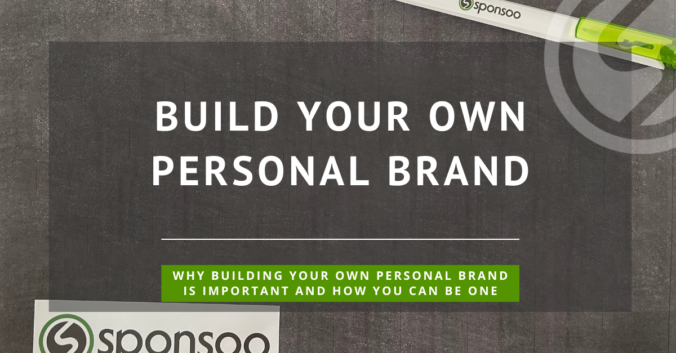Social Media is an important part of digitalization and it seems that the present couldn’t be imagined without it. Social Media and its various platforms are an opportunity to share, to discuss and to connect.
But have you thought about building your own Personal Brand with the help of Social Media?
Many people aren’t aware that human beings themselves can turn into a brand. Not only businesses, products or services can be a brand. Human beings can also be considered a brand due to the reason that they can be professionally managed and due to the reason that they’ve got the associations and characteristics of a brand. (Source: Thomson, 2006).
The so-called Personal Brands – in comparison to the conventional brands – are able to connect and interact with their target groups with the result of building emotional attachments where the target groups consider the Personal Brand a friend of theirs for example. (Source: Saboo/Kumar/Ramani, 2016).
If you think of Personal Brands in sports, who is the first athlete that comes to your mind?
It’s a fact that seven-time World Champion Formula 1 Driver Michael Schumacher or Tiger Woods – one of the most successful professional golfers in history – can be considered Personal Brands. (Source: Saboo/Kumar/Ramani, 2016).
Both of them, as very well-known athletes, have made a reputation for themselves over the years so that it’s not unlikely that someone has already heard their names – e.g., in the news – at least one time.
For other people just like you and me, one doesn’t have to be very famous to turn into a Personal Brand.
But how can other human beings specifically turn into a Personal Brand?
The technological evolution with the existence of Social Media is a meaningful base for generating and increasing Fan engagement. The different platforms are a great way to interact with the followers on Social Media. (Source: Saboo/Kumar/Ramani, 2016).
So why not be more active by using the different features on today’s digital media such as live streaming and having a chat with the followers?
Lando Norris on Twitch – An illustrative example for a Personal Brand in sports
Formula 1 Driver Lando Norris as a Digital Native has discovered Twitch – a platform where you can live stream video games among other things – for himself. He has more than 1.2 million followers on that platform and he tries to be as active as possible whenever he’s not busy being a racing driver.
By live streaming and by interacting with his Fans, he can show parts of his private life and answer personal questions from his audience.
Being active on Twitch isn’t only an important way to reach a different range and therefore another target group offside the (motor) sport, but it’s also an innovative way to generate and increase Fan engagement. (Source: Noble, 2020).

Why Personal Brands can help promote the brands of their sponsors
Personal Brands with their own brand identity need to be aware of how to differentiate themselves from their competitors and be able to communicate them clearly. (Sources: Centeno/Wang, 2016; Spall/Schmidt, 2019).
If e.g. brands decide to sponsor a Personal Brand, their products are sold most likely thanks to the Personal Brand identity as well as the persuasion of the Personal Brand.
That means: Personal Brands «encourage consumption through being an idealized consumer». (Source: Centeno/Wang, 2016).
Sources used for this article:
Centeno, Dave & Wang, Jeff J. (2016). Celebrities as human brands: An inquiry on stakeholder actor co-creation of brand identities. Journal of Business Research (74), p. 133-138.
Noble, Jonathan (2020). Could streaming replace TV as the way to watch F1? Via Autosport https://www.autosport.com/general/news/could-streaming-replace-tv-as-the-way-to-watch f1-4981715/4981715/
Saboo, Alok R., Kumar, Vinay, & Ramani, Girish (2016). Evaluating the Impact of Social Media Activities on Human Brand Sales. International Journal of Research in Marketing 33(3), p. 524- 541.
Spall, Christopher, & Schmidt, Holger J. (2019). Personal Branding. Was Menschen zu starken Marken macht. Wiesbaden: Springer Gabler.
Thomson, Matthew (2006). Human Brands: Investigating Antecedents to Consumers’ Strong Attachments to Celebrities. Journal of Marketing 70(3), p. 104-119.
Twitch via https://www.twitch.tv/landonorris/

Leave a Reply